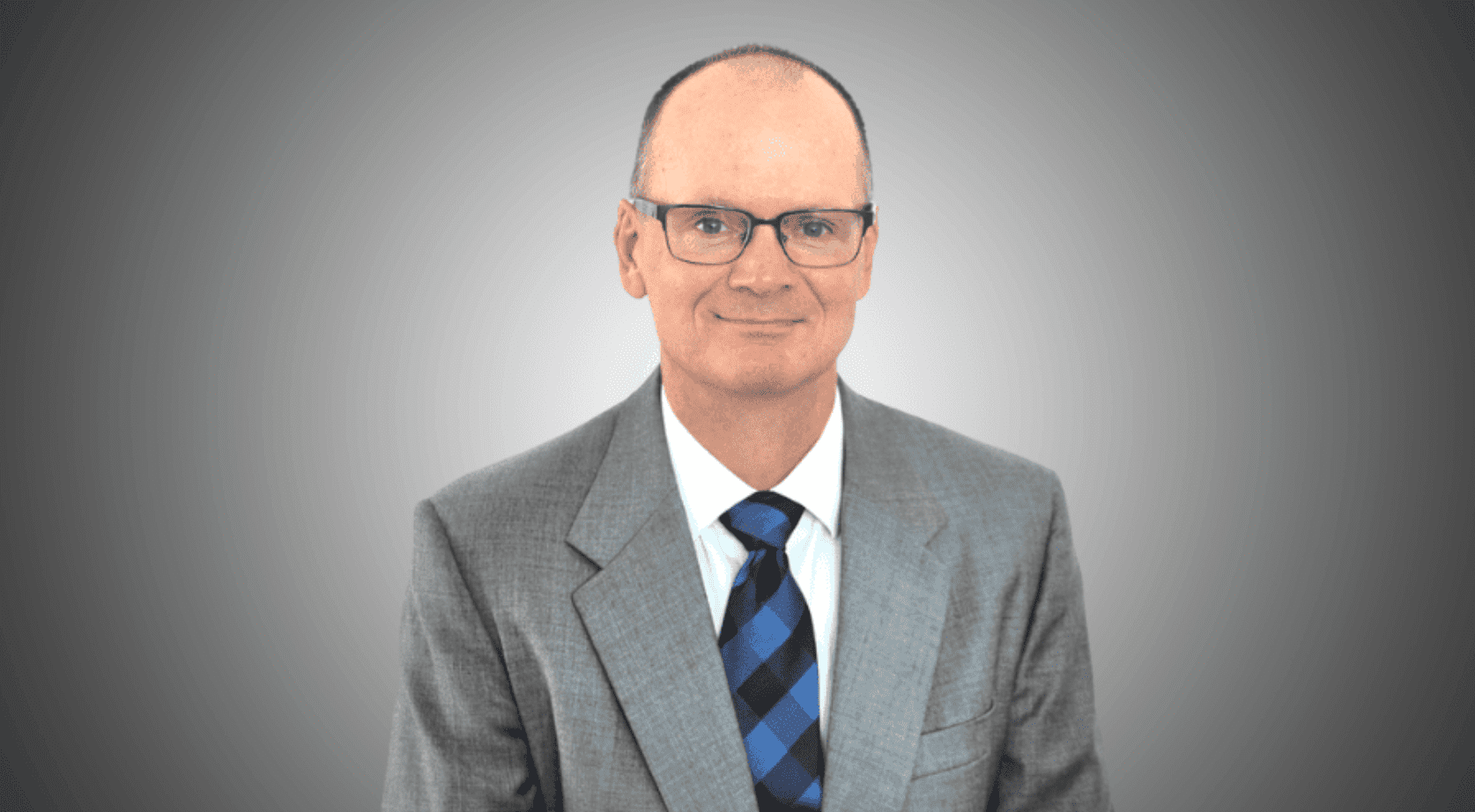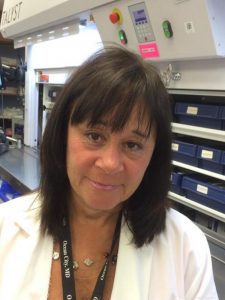
In Conversation: Barry Wells, MD, Director of Business Development, American Gene TechnologiesⓇ
Rockville, Maryland’s American Gene Technologies (AGT™) HIV cure program has been making remarkable progress in its mission to bring a single-dose cure to people living with HIV. That mission is steadily advancing through a successful Phase 1 human clinical trial. The company hopes to begin its Phase 2 study during 2023; this could yield very compelling data towards a functional cure, occurring perhaps as early as the first half of 2024.
In July 2022, AGT announced that it had begun to remove trial participants from their Antiretroviral Therapy (ART) regimens, a major milestone for the HIV cure program. Should their modified T cells respond to HIV after ART cessation, this will be a positive sign that AGT’s HIV therapy, AGT103-T, safely coordinates an immune response against HIV, turning the tables on the virus. While there are many milestones to hit before AGT103-T is approved and commercialized, a positive Phase 1 data readout would be a major achievement for AGT and its mission to cure HIV.
Most recently, AGT announced that it has recorded data that meets the primary and secondary endpoints of its AGT103-T Phase 1 trial. Data from this first-in-human study of AGT103-T has been published in Frontiers.
Needless to say, this is an exciting time for AGT and the HIV community at large. For AGT specifically, preparing to advance its HIV cure program through the next phases of the FDA approval process is critical; this preparation includes raising the capital required to conduct future AGT103-T clinical trials while continuing to grow the company and advance other therapies in the company’s pipeline.
We thought it would be a great time to catch up with Barry Wells, MD, AGT’s newly appointed Head of Business Development, to talk about the company’s future, its ongoing efforts to raise funds to support its HIV cure program and its promising gene therapy platform.
Tell us about your career journey and how you came to join American Gene Technologies.
I am originally from Baltimore. I went to school at Towson University for one year and then transferred to the University of Kansas. I entered KU medical school in 1979. I did my residency at the University of Maryland hospital and practiced urology in the Baltimore/Annapolis area until 2019 when I retired. My wife and I relocated to Tennessee to be closer to our daughter who was starting a family.
My business development predecessor at AGT, who was a family friend, called me to see if I was interested in investing in the company. When I learned what AGT was doing and I completely understood the science, I invested and recruited several friends to invest as well. I soon thereafter started working with AGT on its investor relations team.
At the time, Jeff Galvin, our CEO, was focused on securing investments from family offices, accredited investors, and entrepreneurs. The Head of Business Development then left AGT to start his own company, and the position opened up. I was having good success raising capital at the time, so I called Jeff and told him I’d like the position, and I happily left retirement to join AGT full time.
How would you characterize your overall business development philosophy and how does your unique background as an MD and entrepreneur inform it?
If you look back to when I got out of residency, physicians were still writing notes on charts. Today, we have only electronic medical records. The rate of change of technology is accelerating all the time; it has become a matter of survival to keep up with technology.
I’ve taken Jeff’s philosophy to heart. From his success in the computer industry, he learned an important mantra: we must constantly be trying to make our medical technology obsolete so that we’re always improving. That’s what drives AGT’s mission, and that idea influences my BD philosophy as well.
When I first spoke with AGT about the science, my background as an MD was helpful in understanding the potential of AGT’s platform. It really gave me a sense of marvel about what the company was able to accomplish. My background also gave me a profound appreciation for the advances in gene therapy and allowed me to communicate AGT’s potential to investors.
Why is right now such an exciting time to be leading AGT’s business development efforts?
AGT first submitted its IND in October 2019, but there was a significant delay due to COVID-19. The FDA finally approved the IND in August 2020. AGT treated its first trial participant in May 2021, and the company has now treated seven participants in total.
We’re starting to get back clinical trial data. We met the primary endpoint for all seven patients regarding safety. There were no serious adverse events among any of the clinical trial participants. We also met our secondary endpoints: engraftment of the T cells in good numbers, and we’ve proven that these T cells are functional.
Recently, an article was published in Frontiers in Medicine that documents how AGT103-T generated a marked increase in HIV specific CD4 and CD8 T cells, which should provide reconstitution of the immune systems of HIV patients. This is something that has not been seen before.
We are just getting some early data on the analytic treatment interruption (ATI) added on to our Phase 1 trial for AGT103-T. We expect a report from our science team early in the first part of 2023. Our science team, led by Jeff Boyle, PhD, is doing truly remarkable work.
It’s just a very exciting time to be at AGT, especially at this phase of the HIV cure program clinical trial.
What are your thoughts on the potential impact of AGT’s HIV cure program on global public health?
If you only treat, but do not cure HIV, there are estimates that HIV infection rates will grow 36% by 2030. And that’s just in the U.S. By that time, one quarter of ART users will be over 65. Overall, the lifetime costs for an HIV patient are expected to be well over a million dollars. HIV patients on ART live almost as long as those not infected with the virus, so imagine the cost of their HIV treatment plus all the other services an aging person requires.
Should AGT103-T get approved, we feel that this single-dose therapy will significantly reduce healthcare costs among HIV patients in the U.S. and this will impact healthcare costs in a positive way overall. That’s not to mention removing the burden and side effects of long-term ART use as well as the relief from the psychological stigma of having a chronic infectious disease requiring daily medication.
Globally, it’s difficult to say right now what the impact will be because getting therapies into developing countries will be more challenging. However, if AGT’s HIV cure is approved, the hardest work will have been done. Then, it becomes more a matter of navigating regulatory obstacles, cost, and logistics, which isn’t easy by any means, but is less of an obstacle than creating a cure in the first place.
What is AGT103-T’s market potential should it eventually receive FDA approval?
In the U.S. there are currently 1.2M people living with HIV and 60-80% of these patients have some form of insurance coverage. If you took a conservative number, say, a half a million patients, and estimated a cost of $500K per dose (which is not unreasonable when compared to other gene therapies), that’s about a $250B market in the U.S. That $250B is not achievable in a single year; it will take time to build up the infrastructure to deliver the product to patients. But once the infrastructure is there, the delivery process is straightforward and repeatable.
This is a very rough estimate of the U.S. market for an HIV cure.
What is the promise of AGT’s platform and pipeline looking beyond AGT103-T?
Jeff’s vision is for AGT to become the Microsoft of gene therapy. For example, another company might have a treatment for a monogenic disease but can’t deliver it to the desired cellular target. We could partner with that company to use our platform to deliver the treatment to its target, allowing for licensing opportunities.
AGT’s gene therapy platform is powerful in that it isn’t designed to develop products for only a single indication. In addition to AGT103-T, our science team is perfecting a gene therapy cure for the rare disease PKU, which is currently deep into its preclinical phase.
We’re also using our gene therapy platform to explore potential immuno-oncology treatments. Humanized mouse model studies have been performed where mice are treated with AGT’s Gamma Delta T cells, and we’ve seen dramatic reductions in their tumor volume. This could have a profound impact on the treatment of many different types of solid epithelial tumors, including breast, lung, ovarian, prostate and kidney cancer. Our ImmunoTox program has enormous potential and could ultimately be an even bigger market than our HIV cure program.
What type of investors are you seeking?
We have a diverse pool of investors. We are looking to connect with individual accredited investors who have an interest in supporting gene therapy in general or perhaps see an HIV cure as a worthwhile endeavor, as well as accredited family offices.
We also look to high-net-worth individuals who might be in a completely unrelated business but who have capital to invest. We recently secured a $5M investment from a veteran biotech investor who is in the entertainment industry. In addition, we’ve received significant investments from Gaingels, the largest LGBTQ venture capital firm in the U.S.
Our Series F raise is currently oversubscribed and will close shortly and AGT’s next step is to secure funding from institutional investors.
I’m thrilled to be a part of AGT’s journey. It’s just an exciting time to be part of this company and the future is very bright.
- About the Author
- Latest Posts
Steve brings nearly twenty years of experience in marketing and content creation to the WorkForce Genetics team. He loves writing engaging content and working with partners, companies, and individuals to share their unique stories and showcase their work. Steve holds a BA in English from Providence College and an MA in American Literature from Montclair State University. He lives in Frederick, Maryland with his wife, two sons, and the family dog.







